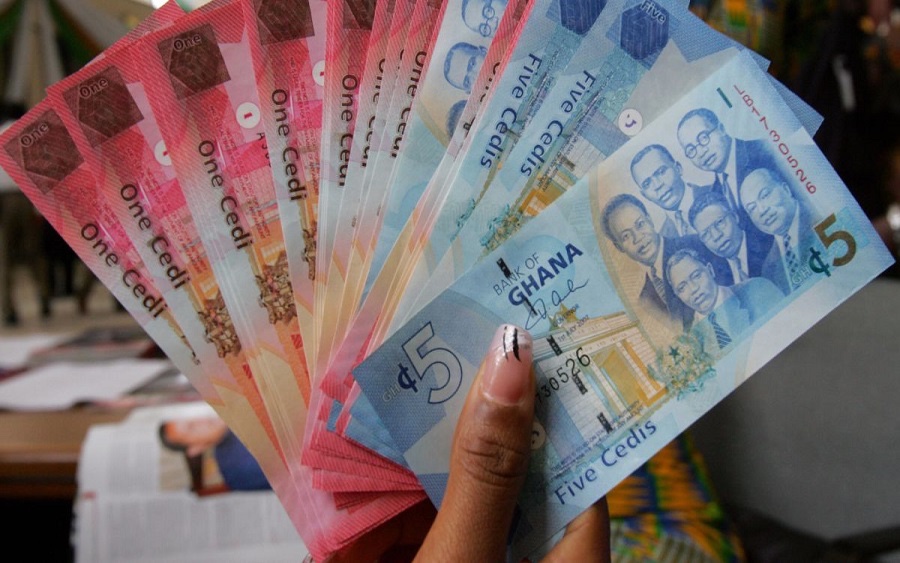In an extraordinary turn of events, Ghana’s cedi has emerged as the world’s strongest-performing currency in 2025, gaining nearly 50% against the US dollar since the start of the year. Starting 2025 at approximately GH¢15 to the dollar, the cedi has appreciated to around GH¢10.21 by early June, reflecting a remarkable 7% rise from the previous Friday’s close of GH¢10.25. Bloomberg data confirms that no other currency has matched this performance, driven by a combination of robust export revenues, strategic monetary policies, and international financial support.
The cedi’s meteoric rise is largely fueled by Ghana’s booming gold and oil exports. Gold prices, which surged from $2,000 per ounce in 2024 to $3,400 in May 2025, propelled Ghana’s gold export revenue from $7.6 billion in 2023 to $11.6 billion in 2024, with further gains projected for 2025. Additionally, a trade surplus of $4.3 billion in 2024, bolstered by oil and non-traditional exports like cocoa, has significantly strengthened Ghana’s foreign exchange reserves, providing a solid foundation for the cedi’s appreciation.
Central to this success is the Bank of Ghana’s proactive monetary policy interventions. In April 2025, the central bank injected $490 million into the forex market to stabilize the cedi and enhance dollar liquidity. A 100-basis-point interest rate hike to 28% in March helped curb inflation, which fell to 21.2% in April from a high of 54.1% in 2022, further bolstering investor confidence in the currency.
The International Monetary Fund (IMF) has played a pivotal role in Ghana’s economic recovery, with its $3 billion bailout program providing critical financial support. Fiscal consolidation measures, including the suspension of ₵65 billion in arrears payments, have alleviated debt pressures and restored investor trust. These efforts have reduced Ghana’s foreign debt burden by nearly ₵150 billion, as the stronger cedi lowers the local currency cost of dollar-denominated obligations.
A unique policy requiring domestic gold purchases to be made in cedis has further fortified the cedi’s value. This initiative increased Ghana’s gold reserves from 9 tonnes in 2023 to 31 tonnes by mid-2025, enhancing the country’s economic resilience. The policy has also encouraged local currency transactions in the gold sector, reducing reliance on foreign currency and supporting the cedi’s strength.
Despite these achievements, challenges remain. The Bank of Ghana’s Governor, Dr. Ernest Addison, has emphasized the need to balance the cedi’s appreciation with maintaining export competitiveness, as a stronger currency could make Ghanaian goods more expensive abroad. Economists also warn of potential inflationary pressures from rising utility prices and global economic uncertainties, which could undermine the cedi’s gains if not carefully managed.
The cedi’s rally has had significant economic benefits, notably in reducing imported inflation and easing the cost of living for Ghanaians. Essential imports like fuel and pharmaceuticals have become cheaper, providing relief to consumers and businesses alike. Furthermore, the stronger cedi has enhanced Ghana’s attractiveness to foreign investors, with increased capital inflows supporting infrastructure and development projects.
However, some analysts caution that the cedi’s rapid appreciation may not be sustainable without continued fiscal discipline and structural reforms. Inflation, though reduced, remains above the Bank of Ghana’s 6–10% target range, and external shocks, such as fluctuations in global commodity prices, could pose risks. The central bank is expected to maintain tight monetary policies to safeguard the cedi’s value while addressing these challenges.
The cedi’s performance has also drawn attention to Ghana’s broader economic recovery. The country’s successful debt restructuring under the G20 Common Framework and negotiations with Eurobond holders have reduced default risks, further boosting market confidence. These efforts, combined with the IMF’s support, have positioned Ghana as a model for economic turnaround in Sub-Saharan Africa.
Looking ahead, the Bank of Ghana plans to sustain its forex interventions and monitor global economic trends closely. The cedi’s strength has sparked optimism about Ghana’s economic prospects, but policymakers remain vigilant to ensure long-term stability. As Dr. Addison noted, “The cedi’s gains reflect our commitment to sound economic management, but we must remain proactive to maintain this momentum.”
For Ghanaians, the cedi’s appreciation has brought tangible benefits, from lower import costs to increased purchasing power. Businesses reliant on imported raw materials have reported reduced operational costs, fostering growth in sectors like manufacturing and retail. The ripple effects of the cedi’s strength are evident across the economy, signaling a brighter outlook for 2025.




